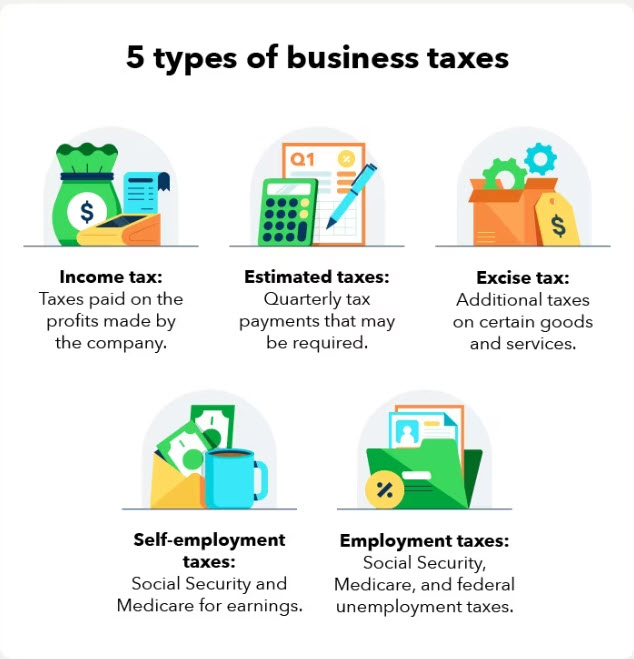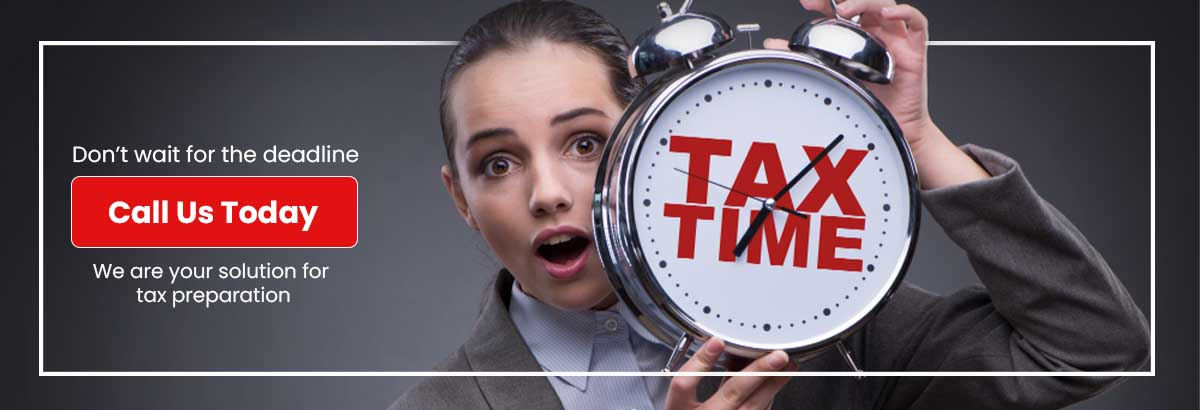The Ultimate Small Business Tax Preparation Checklist for 2023
Why Small Business Tax Preparation Matters
Many small business owners need to pay more attention to the significance of tax preparation until tax season is upon them. Proper tax planning and preparation can:
- Save You Money: Identifying deductions and credits specific to your business can lead to substantial savings.
- Avoid Penalties: Timely and accurate filing helps you avoid IRS penalties and fines.
- Ensure Compliance: Staying up-to-date with tax regulations and filing requirements is crucial to avoid legal issues.
- Free Up Time: Efficient tax preparation means less time spent dealing with taxes and more time focusing on your business’s core activities.
Our Approach
This guide will provide you with a step-by-step checklist tailored for small business owners in 2023. This checklist will cover everything from understanding the types of business taxes to making note of standard tax deductions and credits.
We’ll help you stay organized and informed throughout the tax season, making the process as straightforward as possible.
So, whether you’re a sole proprietor, a small startup, or an established business, join us on this journey to streamline your small business tax preparation for the year ahead.
Let Louis Mamo & Company take control of your taxes so you can focus on what you do best—running and growing your business.
Table Of Content
Table of Contents
Step 1: Understand the Types of Business Taxes
Step 2: Know What Business Tax Forms You Need to File
Step 3: Create a Tax Filing Calendar
Step 4: Gather the Needed Business Tax Return Documents
Step 5: Make a note of Common Tax Deductions and Credits
Introduction
Small business tax preparation is a crucial aspect of running a successful enterprise. As a business owner, you’re responsible for managing your operations and navigating the intricate world of taxes.
It’s a task that can seem daunting, but with the proper guidance and organization, you can make it much more manageable.
In this comprehensive guide for 2023, we’ll walk you through the essential steps of small business tax preparation.
Whether you’re a seasoned entrepreneur or just starting your venture, understanding and effectively managing your tax obligations is critical to financial stability and growth.
Step 1: Understand the Types of Business Taxes
Navigating the labyrinth of business taxes is a fundamental aspect of small business management. Awareness and understanding of these taxes are pivotal for compliance and financial optimization. Let’s explore the different types of taxes that small businesses commonly encounter.

Income Tax
Income tax is a primary consideration for businesses. Its implications vary depending on your business structure. Sole proprietors integrate business income into their personal tax returns, while partnerships, S corporations, and C corporations file separate tax statements.
Understanding income tax is imperative because it’s levied on your business’s profit. The payable amount hinges on your earnings after allowable deductions and credits.
Estimated Taxes
Paying estimated taxes quarterly is a standard practice for many small business owners. These payments represent a portion of your expected annual income and self-employment tax liability.
Accurate estimation of these taxes is critical to avoid underpayment penalties and maintain financial stability.
Self-Employment Taxes
Sole proprietors, partners, and LLC members typically face self-employment taxes, encompassing Social Security and Medicare contributions. These taxes apply to net earnings from self-employment, and you’re responsible for both the employer and employee’s share.
Employment Taxes
If you employ others, employment taxes are a crucial factor. These encompass federal income tax withholdings, Social Security and Medicare taxes, and the Federal Unemployment Tax Act (FUTA). Adhering to employment tax regulations is vital for penalty avoidance and ensuring employee benefits.
Excise Tax
Though less common, excise taxes apply to certain goods or services. They are levied on selling specific items or activities and not on income or profit. Identifying if your business is subject to excise taxes and understanding their calculation and reporting is essential for compliance.
By mastering these tax types, you equip your business with the knowledge to manage taxation challenges effectively. Next, we’ll delve into each category, providing insights and tools for efficient tax handling.
See How We Can Help Streamline Your Bookkeeping Process!
Would you be interested in learning more about how we can help?
Step 2: Know What Business Tax Forms You Need to File
A crucial step in small business tax preparation is understanding the tax forms your business must file. Different business structures and tax situations require different forms. Here, we’ll guide you through the key tax forms that small business owners should know, along with references to relevant IRS resources.
Essential Tax Forms for Small Businesses
- Form 1040 (Schedule C): This is used by sole proprietors and single-member LLCs to report business income and expenses. It’s attached to your tax return.
- Form 1065: Partnerships use this form to report their income, deductions, gains, and losses. It’s an informational return; each partner receives a Schedule K-1 showing their share of the business income.
- Form 1120: C corporations file this form to report their income, gains, losses, deductions, and credits, as well as to calculate their corporate tax liability.
- Form 1120-S: S corporations use this form. Similar to partnerships, shareholders receive a Schedule K-1 that reports their share of the corporation’s income and losses.
- Form 940: This form is for reporting your annual Federal Unemployment Tax Act (FUTA) tax.
- Form 941: Used to report quarterly income taxes, Social Security tax, or Medicare tax withheld from employee’s paychecks and to pay the employer’s portion of Social Security or Medicare tax.
- Schedule SE (Form 1040): Self-employed individuals use this to calculate self-employment tax owed.
Additional Resources
- IRS Small Business and Self-Employed Tax Center: This resource offers a wealth of information, including a breakdown of forms and their purposes.
- Electronic Federal Tax Payment System (EFTPS): An online system for paying federal taxes.
Understanding and utilizing the correct tax forms is fundamental to ensuring compliance and avoiding penalties. Each form plays a role in portraying your business’s financial picture to the IRS. In the following sections, we’ll discuss how to effectively organize your tax documents and make the most of deductions and credits available to your small business.

Step 3: Create a Tax Filing Calendar
Establishing a tax filing calendar is vital to efficient small business tax preparation. Staying ahead of deadlines ensures compliance and reduces stress during the tax season. This step emphasizes the importance of a tax filing schedule and guides you through setting up a practical tax calendar.
Importance of a Tax Filing Calendar
- Prevents Missed Deadlines: Keeping track of various tax deadlines can be overwhelming. A tax calendar helps ensure you get all the filing and payment deadlines, avoiding late fees and penalties.
- Aids in Cash Flow Management: Knowing your tax deadlines in advance helps plan your cash flow, ensuring funds are available to cover your tax liabilities.
- Streamlines Tax Preparation: A well-organized tax calendar gives you a clear view of what’s due and makes your tax preparation process more systematic and less hectic.
Setting Up a Tax Calendar
- Identify Key Dates: Start by marking your business’s relevant federal and state tax deadlines. Include estimated tax payment dates, quarterly payroll tax dates, and annual return filing deadlines.
- Customize According to Your Business: Every company has unique tax obligations. Tailor your calendar to reflect your requirements, including excise taxes or industry-specific tax deadlines.
- Update Regularly: Tax laws and deadlines can change. Regularly update your calendar to reflect any new tax legislation or deadline adjustments.
Tools and Software for Tax Calendar Management
- Digital Calendars: Utilize digital calendar tools like Google Calendar or Microsoft Outlook to set reminders for tax deadlines. These tools are easily accessible and can be synced across devices.
- Accounting Software: Many small business accounting software options have built-in tax calendar features. These can automatically update with common tax deadlines and integrate with your financial data.
- IRS Tax Calendar: The IRS offers an online tax calendar for businesses, which can be a valuable resource. It’s updated regularly and can be integrated into your existing calendar system.
By implementing a tax filing calendar, you can significantly reduce the stress and complexity of tax season. This organizational tool not only aids in maintaining compliance but also contributes to more strategic financial planning for your small business. The following sections will delve into gathering necessary tax documents and understanding tax deductions and credits to further streamline your tax preparation process.
Step 4: Gather the Needed Business Tax Return Documents
A crucial part of effective small business tax preparation is gathering all necessary documentation. Having the correct documents at hand simplifies the filing process and ensures accuracy in your tax returns. This section details your essential documents and provides a comprehensive Small Business Tax Deduction Checklist.
Essential Tax Documents for Small Businesses
Income Records:
-
- Sales records
- Receipts for services provided
- Invoices issued to clients
- Bank statements showing income transactions
Expense Records:
-
- Receipts for business expenses (e.g., office supplies, marketing costs)
- Credit card statements and bank statements showing expenses
- Bills for rent, utilities, and other overhead costs
- Records of business travel expenses
Employee Compensation Information:
-
- Payroll records
- Forms W-2 and W-3 for employees
- Forms 1099-NEC for independent contractors
- Records of employment taxes paid
Asset Information:
-
- Purchase receipts or invoices for business assets (e.g., equipment, vehicles)
- Depreciation schedules
- Records of asset sales or disposals
Loan and Financial Records:
-
- Loan statements showing interest paid
- Bank loan documents
- Mortgage interest statements for business property
Previous Year’s Tax Return:
-
- Last year’s federal and state tax returns for reference
- Carryover items like capital loss or credit information
Small Business Tax Deduction Checklist
Maximizing tax deductions is essential for small businesses. This checklist covers standard tax deductions to consider:
Home Office Deduction:
-
- If you use part of your home exclusively for business, you may deduct expenses like mortgage interest, insurance, utilities, repairs, and depreciation.
Business Use of Vehicle:
-
- Costs related to business use of your vehicle, including mileage, gas, repairs, and insurance.
Supplies and Materials:
-
- Office supplies, raw materials, and other business essentials.
Travel and Meal Expenses:
-
- Business travel expenses include flights, hotels, and 50% of meal expenses during business trips.
Insurance Premiums:
-
- If you’re self-employed, business insurance premiums include liability, property, and health insurance.
Professional Services:
-
- Fees for legal, accounting, and other professional services.
Advertising and Marketing Costs:
-
- Expenses for marketing and advertising, including website maintenance and online advertising.
Education and Training:
-
- Costs for education and training that improve your business skills.
Interest on Business Loans:
-
- Interest paid on business loans or credit lines.
Retirement Contributions:
-
- Contributions to employee retirement plans or a self-employed retirement plan.
Health Care Tax Credit:
-
- Eligible small businesses can claim a tax credit for employee health insurance premiums.
Utilities:
-
- Electricity, water, internet, and phone expenses for your business.
By meticulously compiling these documents and leveraging the deductions on this checklist, you can ensure a smoother tax filing process and potentially reduce your tax liability. In the upcoming sections, we will explore how to make the most of tax deductions and credits and tips on requesting filing extensions if needed.
Chapter 5: Preparing and Organizing Your Financial Documents
Having organized financial records is the backbone of a smooth tax season. Well-structured documentation can save you time, reduce the risk of errors, and help leverage all available deductions and credits.
1. Essential Documents:
- Income Records: Maintain detailed records of all business income. This includes invoices, sales records, and bank deposit statements.
- Expense Receipts: Keep all receipts for business expenses. Digital tools can help scan and store these efficiently.
- Payroll Documents: If you have employees, ensure all payroll documents are in order, including W-2 and W-3 forms.
2. Using Digital Tools:
- Accounting Software: QuickBooks or Xero can help track income and expenses, generate essential financial statements, and prepare taxes.
- Cloud Storage: Cloud storage solutions offer an efficient way to store and organize digital documents safely.
3. Annual Review:
- Reconciliation: Ensure all bank and credit card statements reconcile with your internal records.
- Verify Deductions: Review all potential deductions to ensure you have the necessary supporting documentation.
- Organize and Archive: Older records not immediately needed for the current tax season should be archived but easily accessible if required.
Step 6: Request a Filing Extension If Needed
In the final phase of small business tax preparation, it’s important to understand the process of requesting a tax-filing extension when necessary.
This step can be crucial for businesses that need more time to gather information, complete accurate filings, or manage cash flow effectively.
Here, we explain the process and offer practical tips on when and how to request an extension.
Understanding Tax Filing Extensions
What is a Tax Filing Extension?
-
- A tax filing extension provides additional time to file your tax return, not to pay your tax. Estimating and paying any owed taxes by the original due date is important to avoid interest and penalties.
Duration of the Extension:
-
- For most businesses, the IRS grants a six-month extension. This typically moves the filing deadline from April 15th to October 15th for individuals and sole proprietors and from March 15th to September 15th for corporations and partnerships.
How to Request a Tax Filing Extension
File IRS Form 7004:
-
- Businesses should use Form 7004, “Application for Automatic Extension of Time to File Certain Business Income Tax, Information, and Other Returns.” This form applies to many business entities, including partnerships, multi-member LLCs, and corporations.
Submit Form 4868 for Sole Proprietors:
-
- Sole proprietors and single-member LLCs should file Form 4868, “Application for Automatic Extension of Time to File U.S. Individual Income Tax Return.”
E-Filing Options:
-
- Both forms can be e-filed through IRS-approved e-file software. This method is fast and provides immediate confirmation of receipt.
Payment of Estimated Taxes:
-
- If you owe taxes, paying an estimate of what you owe before the original deadline is essential to avoid penalties. You can make these payments using the Electronic Federal Tax Payment System (EFTPS) or by mailing a check with your extension form.
Tips on Requesting an Extension
Evaluate Your Need for an Extension:
-
- Assess your situation well before the deadline. Common reasons for extensions include incomplete records, unforeseen circumstances, or more time for accurate reporting.
Understand the Implications:
-
- Remember, an extension to file is not an extension to pay. Interest and penalties can accrue on unpaid taxes even if you’ve filed for an extension.
Consult with a Tax Professional:
-
- Consult a tax professional if you need clarification on the process or how much tax you owe. They can provide guidance and help you avoid costly mistakes.
Stay Organized:
-
- Use the extra time wisely. Stay organized, gather all necessary documentation, and plan to file as early as possible before the extended deadline.
By understanding the process and strategically planning, requesting a tax filing extension can be valuable in your tax planning arsenal. It allows additional time to ensure that your small business’s tax filing is accurate and complete.
Conclusion
As we wrap up this comprehensive guide to small business tax preparation, it’s crucial to underscore the significance of this process. Proper tax preparation is not just a legal obligation; it’s a cornerstone of sound business management. It ensures financial health compliance with tax laws and can even contribute to the growth and stability of your business.
The Importance of Proper Tax Preparation
Financial Accuracy and Compliance:
-
- Accurate tax preparation helps you maintain compliance with the IRS and avoid costly penalties.
- It provides a clear picture of your business’s financial standing, aiding in better financial decision-making.
Maximizing Deductions and Credits:
-
- Effective tax planning allows you to take full advantage of applicable deductions and credits, potentially saving significant money.
Cash Flow Management:
-
- By understanding your tax obligations and planning accordingly, you can better manage your business’s cash flow, ensuring you have funds available when needed.
Using the Checklist to Stay Organized
- The provided checklist is a valuable tool in simplifying the tax preparation process. It helps ensure that every critical aspect of your tax responsibilities is noticed.
- Regularly revisiting and updating this checklist according to your business needs and changes in tax laws are recommended.
Open Invitation for Interaction
- We understand that navigating small business taxes can be complex and sometimes overwhelming. Therefore, we invite you to share your questions or feedback.
- Whether it’s about specific aspects of the checklist, tax planning strategies, or general inquiries about small business taxes, we’re here to assist.
- Your insights and experiences can also be valuable to other readers, so feel free to share your tips or stories related to small business tax preparation.
In conclusion, effective tax preparation is integral to running a successful small business. It requires diligence, organization, and a proactive approach.
We hope this guide has provided valuable tools and information to navigate your tax responsibilities confidently. Stay informed and organized, and don’t hesitate to seek professional advice when needed.
Your diligence in tax preparation ensures compliance and sets a strong foundation for the financial health of your business.
Additional Resources
Here are some additional resources to further assist you in your journey of small business tax preparation. These links offer valuable information, tools, and guidance to ensure you can handle your business’s tax obligations.

IRS Small Business and Self-Employed Tax Center:
-
- A comprehensive resource the IRS provides specifically for small businesses and self-employed individuals. It covers a wide range of topics, including how to file and pay taxes, available credits and deductions, and changes in tax law.
- Visit the IRS Small Business Center
Small Business Administration (SBA) – Guide to Taxes:
-
- The SBA offers a guide that includes information on federal tax obligations, tips for choosing the correct tax year and understanding different business structures.
- Explore SBA’s Tax Guide
Electronic Federal Tax Payment System (EFTPS):
-
- An accessible U.S. Department of the Treasury service for paying federal taxes electronically. It’s secure, convenient, and accessible 24/7.
- Access EFTPS
SCORE – Free Small Business Tax Workshops:
-
- SCORE, a resource partner of the SBA, offers free tax workshops for small business owners. These workshops can be a great way to learn more about your tax responsibilities.
- Find SCORE Tax Workshops
TurboTax Small Business Tax Center:
-
- Provides articles, tools, and tips for small business tax preparation. It’s a user-friendly resource for understanding various tax obligations.
- Visit TurboTax Small Business Center
QuickBooks Resource Center – Taxes:
-
- Offers guides, articles, and tools for small business tax preparation. It’s beneficial for those using QuickBooks as their accounting software.
- Explore QuickBooks Resource Center
Nolo – Small Business Taxes:
-
- Provides articles and books on various small business tax topics, including deductions, audits, and tax planning strategies.
- Check Out Nolo’s Tax Resources
- American Institute of CPAs (AICPA) – Resources for Small Businesses:
- AICPA offers resources and guides to help small business owners understand complex tax issues and stay compliant.
- Visit AICPA Resources
These resources are designed to provide a wealth of information and tools to help navigate the complexities of small business taxes. Remember, while these resources are helpful, consulting with a tax professional for personalized advice is always recommended.
To learn more, reach out to the team at Louis Mamo and Company



